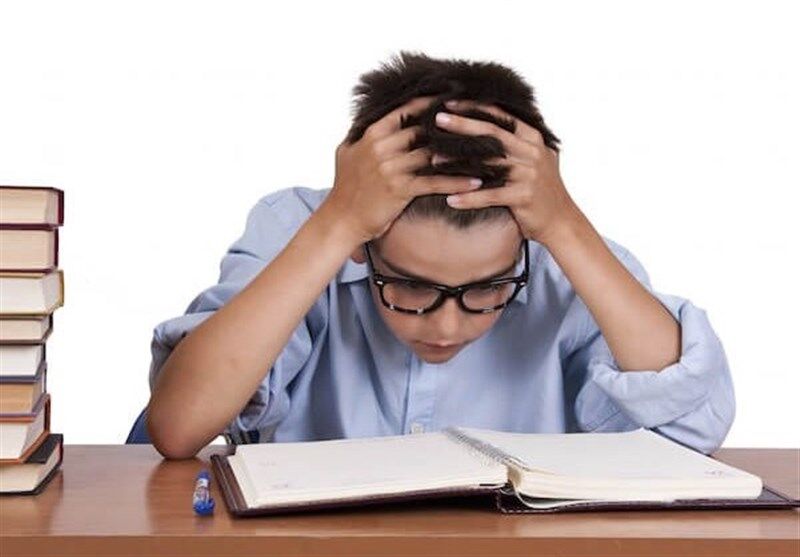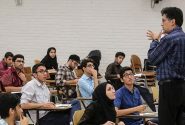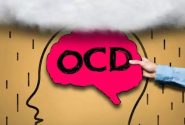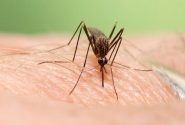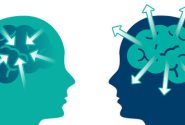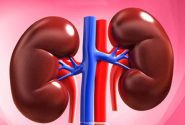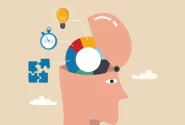به گزارش پایگاه خبری تحلیلی تسریر، به نقل از هلث دی نیوز، محققان همچنین دریافتند که این فعالیتهای متعدد بعد از مدرسه نظیر تدریس خصوصی، کلاسهای ورزشی، و حتی تکالیف زیاد مدرسه، بعید است که برای دانشآموزان مفید باشد.
«کارولینا کائتانو»، محقق ارشد و استادیار اقتصاد در کالج بازرگانی دانشگاه جورجیا، گفت: «بسیاری از مردم فکر میکنند زمان بیشتر مطالعه یا تدریس خصوصی منجر به نمرات بهتر میشود، اما مطالعه جدید نشان میدهد که اینگونه نیست.»
کائتانو در بیانیه خبری دانشگاه گفت: «ما دریافتیم که تأثیر فعالیتهای اضافی بر مهارتهای شناختی، اساساً صفر است. و آنچه شگفتآورتر است این است که این فعالیتها بر مهارتهای غیرشناختی کودک تأثیر منفی دارد.»
کائتانو گفت: «به عبارت دیگر، آموزشهای اضافی باعث میشود دانش آموزان دبیرستانی تواناییهای اجتماعی و عاطفی از جمله آرامش، کنترل عاطفی، انعطاف پذیری و ارتباطات را از دست بدهند.»
کائتانو گفت که بهتر است به رابطه بین فعالیت های غنی سازی و این فعالیت های اجتماعی و مهارت های عاطفی به عنوان یک منحنی فکر کنیم.
به گفته محققان، در ابتدا، یک ساعت بیشتر مطالعه، تدریس خصوصی یا فعالیتهای گروهی به دانش آموزان کمک میکند تا عملکرد تحصیلی خود را بهبود بخشند.
کائتانو گفت: «اما هر چه دانشآموز زمان بیشتری را صرف یادگیری بیشتر کند، زمان کمتری برای استراحت، معاشرت آزادانه یا خواب دارد؛ فعالیتهایی که برای مهارتهای زندگی و حفظ دانش ارزشمند هستند.»
وی در ادامه افزود: «کمبود خواب و استرس میتواند باعث شود دانش آموزان هر گونه دستاورد علمی یا اجتماعی را که ممکن است از طریق فعالیتهای اضافی به دست آوردند، از دست بدهند.»
کائتانو گفت: «در نهایت، یک برنامه مملو از آموزشهای اضافی میتواند باعث شود که بچههای پراسترس در نتیجه طولانی شدن بیش از حد، از اضطراب و افسردگی رنج ببرند.»
کائتانو گفت: “شما در حداکثر چیزی هستید که می توانید از نظر آکادمیک از آن کار به دست آورید.” «اما در منحنی مهارتهای غیرشناختی، شما حداکثر را پشت سر گذاشتهاید و به بخش نزولی منحنی رفتهاید. شما در آن مرحله مهارتهای عاطفی-اجتماعی خود را از دست میدهید.”
برای این مطالعه، محققان دادههای دقیق ۴۳۰۰ دانش آموز ابتدایی، راهنمایی و دبیرستان را تجزیه و تحلیل کردند. این تیم متوجه شد که دانشآموزان دبستانی و راهنمایی در بالای منحنی هستند، به این معنی که آنها با بازدهی منفی از هر گونه فعالیت اضافی مواجه هستند.
کائتانو گفت: «در حالی که آنها هنوز وارد یک حوزه منفی نشدهاند، آموزشهای اضافی احتمالاً به آنها آسیب میزند.
کائتانو گفت که دانشآموزان دبیرستانی بدترین وضعیت را داشتند، زیرا نتیجه منفی از این کلاسهای اضافی، در این دوره بیشتر ظاهر شد.
مطالعه جدید اخیراً در مجله Economics of Education Review منتشر شده است.
کائتانو تاکید کرد که اجازه دادن به دانش آموزان در بهره گیری از اوقات فراغت بیشتر میتواند به ایجاد نظم عاطفی و انعطافپذیری آنها کمک کند.
کائتانو گفت: «مهارتهای غیرشناختی بسیار مهم هستند، اما مردم همیشه به آنها فکر نمیکنند، زیرا اندازهگیری آنها سخت است. “آنها نه تنها برای خوشبختی آینده، بلکه برای موفقیت حرفه ای نیز مهم هستند.”
کائتانو استدلال کرد که برای کودکان مهم است که برای ایجاد مهارت های اجتماعی و عاطفی خود به شکلی نامحدود با بچه های دیگر معاشرت کنند. در واقع، میتواند حیاتیتر از آن یادگیری کوچک آخر باشد.
متأسفانه، تا زمانی که والدین کافی سوار نشوند، کودکانی که زمان آزاد بیشتری به دور از فعالیتهای غنیسازی میدهند، هیچ بچه دیگری برای بازی در دسترس نخواهند داشت.
کائتانو گفت: «آنچه ما در اینجا داریم یک مشکل اجتماعی است. “فقط کارهای زیادی وجود دارد که والدین می توانند انجام دهند.”
این مطالعه نشان نمی دهد که چند ساعت غنی سازی بهترین است. کائتانو گفت که والدین احتمالا بهترین قاضی هستند.
کائتانو میگوید: «من میتوانم بگویم که اگر نشانههایی دارید که بهعنوان یک خانواده، بیش از حد کشش دارید، احتمالاً در سمت بازدهی منفی منحنی قرار دارید و باید کاهش دهید.» “اگر هر زمان که کسی برای یک قرار بازی با شما تماس می گیرد، همیشه برنامه ریزی شده است، پس واضح است که بیش از حد برنامه ریزی شده اید.”
Days clogged with numerous after-school activities are detrimental to the mental health of over-scheduled high school students, a new study finds.
Researchers also found that these “enrichment’ activities — tutoring, sports, school clubs and even homework — are unlikely to benefit students academically.
Many folks think extra study time or tutoring will lead to better grades, but the new study shows many students are at their limit, said researcher Carolina Caetano, an assistant professor of economics with the University of Georgia College of Business.
“We found that the effect of those additional activities on cognitive skills, that last hour, is basically zero,” Caetano said in a university news release. “And what’s more surprising is that the last hour doing these activities is contributing negatively to the child’s non-cognitive skills.”
In other words, academic overload is causing high schoolers to lose out on social and emotional abilities — well-being, emotional control, resilience and communication, Caetano said.
Caetano said it’s best to think of the relationship between enrichment activities and these social and emotional skills as a curve.
For a while, an additional hour of studying, tutoring or group activities will help students improve their academic performance.
But the more time a student spends on enrichment, the less time they have to relax, freely socialize or sleep – activities valuable for life skills and knowledge retention, Caetano said.
Lack of sleep and stress can cause students to lose whatever academic or social gains they might have gotten through enrichment activities, Caetano said.
Eventually, a schedule overloaded with academic enrichment can result in stressed-out kids suffering from anxiety and depression as a result of being overextended, Caetano said.
“You’re at the maximum of what you can acquire academically from that work,” Caetano said. “But on the curve for non-cognitive skills, you have gone past the maximum and gone into the descending part of the curve. You’re losing socio-emotional skills at that point.”
For this study, researchers analyzed detailed data from 4,300 elementary, middle school and high school students.
The team found that elementary and middle schoolers were at the top of the curve, which means they’re facing negative returns from any additional enrichment activities.
“While they haven’t gone into a negative area yet, additional work is likely to harm them,” Caetano said.
High schoolers had the worst situation, because they’ve actually started to suffer negative returns from having too much on their plates, Caetano said.
The new study was published recently in the journalEconomics of Education Review.
Opening student’s schedules and letting them enjoy more free time could help build the emotional regulation and resilience that will benefit them when the college crunch occurs, Caetano said.
“Non-cognitive skills are highly important, but people don’t always think of them because they’re hard to measure,” Caetano said. “They are important not only for future happiness, but professional success as well.”
It’s important for children to hang out with other kids in an unrestricted manner to build their social and emotional skills, Caetano argued. In fact, it could prove more vital than that last little bit of learning.
Unfortunately, unless enough parents get on board, children provided more free time away from enrichment activities won’t have any other kids available for play.
“What we have here is a societal problem,” Caetano said. “There’s only so much that parents can do.”
The study doesn’t suggest how many enrichment hours are best. Caetano said parents are probably the best judges.
“I’d say that if you have signs that, as a family, you are overly stretched, you probably are in the negative returns side of the curve, and you should scale back,” Caetano said. “If whenever someone contacts you for a play date, you are always scheduled, then it’s very clear that you are overscheduled.”
تسریر مراقب سلامتی شماست!

